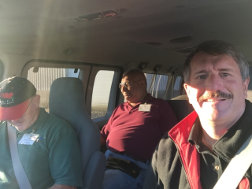 I just read a short review of a book that tells a specific story about the helplessness and hopelessness of growing up poor in rural America with a drug-addicted, single mother. The book titled A Hillbilly Eulogy: A Memoir of a Family and Culture in Crisis by J.D. Vance sounds like it is a painful but truly enlightening read. This post is not about the book–it is now on my reading list, but I have not read it yet. It was something that was said in the review that captured a truth of which many people with a similar world view to my own have been reminded due to the trajectory of culture, politics and government today in America. It is about the source of our current problems and the direction from which the only hope for a solution can come:
I just read a short review of a book that tells a specific story about the helplessness and hopelessness of growing up poor in rural America with a drug-addicted, single mother. The book titled A Hillbilly Eulogy: A Memoir of a Family and Culture in Crisis by J.D. Vance sounds like it is a painful but truly enlightening read. This post is not about the book–it is now on my reading list, but I have not read it yet. It was something that was said in the review that captured a truth of which many people with a similar world view to my own have been reminded due to the trajectory of culture, politics and government today in America. It is about the source of our current problems and the direction from which the only hope for a solution can come:
The book demonstrates in spades that there is no simple statist solution to the so-called “plight of the working poor.” Vance’s experience shows that the problems in these communities lie far beyond the reach of the nanny state. Rather, broken people produce broken cultures and social pathologies. The only way to fix the culture and eliminate the pathologies is to fix the people. And that is the primary conflict of the book. Can people really change? Indeed, Vance’s own doubt about whether he himself could truly escape the demons of his past is one of the most poignant aspects of this story. It is clear that the problems he describes are primarily moral/spiritual in nature, and therefore so are the solutions.
The article has motivated me to make the effort to read a book that is sure to be a painful but worthy exercise. The review article will give you a sense for what you might be getting yourself into.


 I spent much of the day today trying to figure out how to use CSS to control the way the web pages look in the
I spent much of the day today trying to figure out how to use CSS to control the way the web pages look in the  Just a day after I wrote a post on
Just a day after I wrote a post on 


 One of our most fondly remembered homeschool outings was a visit to the
One of our most fondly remembered homeschool outings was a visit to the  Only mad dogs and Englishmen go out in the noon day sun. I walk to and from a grocery store every work day to buy myself some lunch and get some exercise. I am beginning to realize that unless I want to remain damp from the exertion for most of the rest of the afternoon, I need to think about doing my exercising in the gym after work. That is really not nearly as satisfying as walking outside everyday, so I will probably just be damp until things start to cool down in a month or two. The walk was optimal at my last job in Oregon–it was a little further and a lot cooler. Still, I am thinking it is going to be great here in the Dallas area for all but a couple of months in the winter and a couple of months in the summer.
Only mad dogs and Englishmen go out in the noon day sun. I walk to and from a grocery store every work day to buy myself some lunch and get some exercise. I am beginning to realize that unless I want to remain damp from the exertion for most of the rest of the afternoon, I need to think about doing my exercising in the gym after work. That is really not nearly as satisfying as walking outside everyday, so I will probably just be damp until things start to cool down in a month or two. The walk was optimal at my last job in Oregon–it was a little further and a lot cooler. Still, I am thinking it is going to be great here in the Dallas area for all but a couple of months in the winter and a couple of months in the summer.


